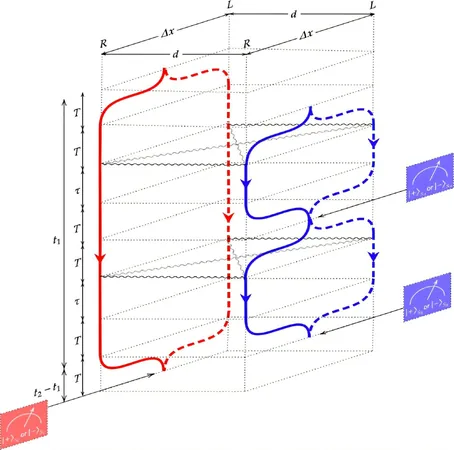
Decade-Old Needrestart Vulnerabilities Threaten Ubuntu Linux – Are You at Risk?
2024-11-20
Author: Olivia
Recent security findings have shaken the Ubuntu Linux community as five critical local privilege escalation vulnerabilities have been discovered in the long-standing needrestart utility. This tool, introduced over a decade ago in version 21.04, has now been linked to severe security flaws that could allow attackers to gain root access.
The vulnerabilities, reported by the cybersecurity firm Qualys, are identified by the following CVE numbers: CVE-2024-48990, CVE-2024-48991, CVE-2024-48992, CVE-2024-10224, and CVE-2024-11003. These flaws stem from needrestart version 0.8, which was released in April 2014, and the patches were only rolled out recently in version 3.8.
What is Needrestart?
Needrestart is a widely-used utility in Linux systems, particularly on Ubuntu Server, designed to identify services that need restarting after package updates. This is essential to ensure that programs and services run using the most up-to-date versions of shared libraries, thus maintaining system integrity and security.
Overview of the Vulnerabilities
Exploitability of these vulnerabilities potentially puts local users at great risk. Here’s a breakdown of how each flaw operates:
CVE-2024-48990: Attackers can control the PYTHONPATH variable, allowing them to execute arbitrary code as root during Python initialization by injecting a malicious shared library.
CVE-2024-48991: A race condition enables attackers to swap the Python interpreter binary with a malicious executable, tricking the system into executing their code as root.
CVE-2024-48992: The RUBYLIB variable vulnerability permits local attackers to run arbitrary Ruby code by injecting malicious libraries.
CVE-2024-10224: Flaws in Perl's ScanDeps module allow crafted filenames to execute arbitrary commands as root, thereby compromising the system.
CVE-2024-11003: Insecure usage of the eval() function may enable remote code execution through unsanitized input, which could be exploited if processed by the needrestart tool.
Mitigation Steps
To exploit these vulnerabilities, an attacker typically requires local access, which might seem to limit the risk; however, it is crucial to understand that such access is more common than one might think, especially in shared environments or due to negligent security practices. The discovery echoes past incidents where similar vulnerabilities led to serious breaches in Linux systems.
To protect your systems, it is vital to upgrade to needrestart version 3.8 or a later release, which addresses these vulnerabilities. Additionally, users are advised to adjust their configuration file (needrestart.conf) by adding the following line: $nrconf{interpscan} = 0; This action disables interpreter scanning and offers an added layer of protection against potential exploits.
Final Thoughts
As needrestart is frequently employed in numerous infrastructure settings, the potential for privilege escalation through these vulnerabilities cannot be overlooked. System administrators and users of Ubuntu need to act quickly to secure their systems against this decade-old flaw. Don’t wait until it’s too late—protect your vital data and maintain the integrity of your systems today!









 Brasil (PT)
Brasil (PT)
 Canada (EN)
Canada (EN)
 Chile (ES)
Chile (ES)
 España (ES)
España (ES)
 France (FR)
France (FR)
 Hong Kong (EN)
Hong Kong (EN)
 Italia (IT)
Italia (IT)
 日本 (JA)
日本 (JA)
 Magyarország (HU)
Magyarország (HU)
 Norge (NO)
Norge (NO)
 Polska (PL)
Polska (PL)
 Schweiz (DE)
Schweiz (DE)
 Singapore (EN)
Singapore (EN)
 Sverige (SV)
Sverige (SV)
 Suomi (FI)
Suomi (FI)
 Türkiye (TR)
Türkiye (TR)